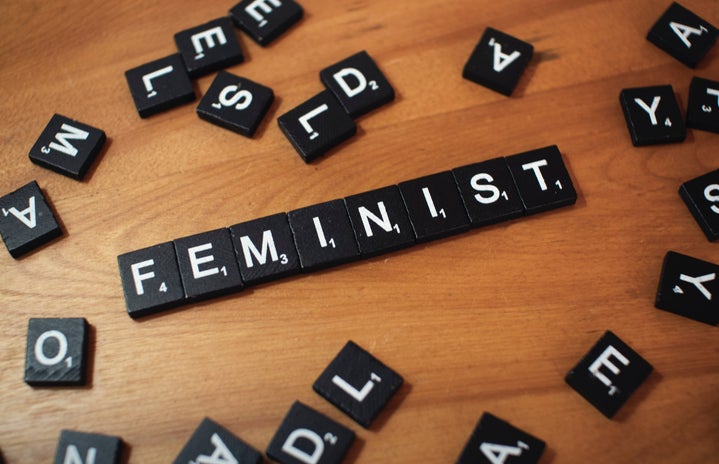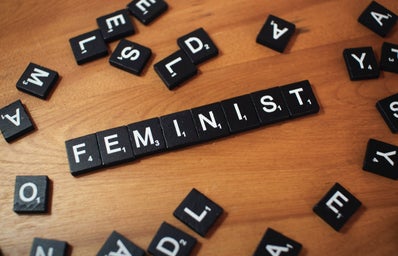“I chose myself,” Deepti Vempati repeated to her mother, minutes after leaving her fiance at the altar.
As she walked down the aisle in the opposite direction in a beautiful, silver lehenga, Deepti did what so many South Asian women struggle to do– choose themselves.
Deepti was one of the most loved contestants on season two of Netflix’s Love is Blind. The dating show experiment tests whether “love is blind” and if people can fall in love based on a pure emotional connection rather than physical.
Contestants date for 10 days in “pods,” unable to see each other, and are only allowed to meet face-to-face after they get engaged. The couples then take a vacation to Mexico and then live together for a few weeks. After getting engaged, they have a total of 28 days before their weddings where they say “I do,” and more often, “I don’t.”
Deepti and Abhishek “Shake” Chatterjee were one of six couples who got engaged “sight unseen” as the show puts it. The two are ethnically Indian, something they made a point of. Both Deepti and Shake said that they had never dated another Indian person before.
Many fans thought of Shake as superficial, rude and arrogant. While contestants dated in the pods, he asked women identifying characteristics about their bodies and what they looked like– the exact opposite of what the show’s intentions are. He constantly told other contestants that he was not attracted to Deepti and even said “She reminds me so much of my aunt” to another contestant. Deepti was in the dark about his lack of attraction– but it was something she sensed.
When they made it to the altar, Deepti surprised the audience, and surprised Shake even more. “I deserve somebody who knows for sure, so I’m choosing myself and I’m going to say no.”
South Asian, and in Deepti and Shake’s case, Indian cultural ideals create expectations of marriage, especially to successful partners.
The nuanced social and marriage culture of an entire region or country is difficult to encapsulate in such a short description without making vast generalizations, which many people already do without truly knowing or experiencing the culture. There is discourse and records of South Asia being accepting and progressive before European colonization, such as with gender nonconformity and queerness, but Europeans standards and Christian laws contributed to the patriarchy that many people associate with South Asia today. Many Western cultures aren’t aware of this, and instead just view South Asian culture, religions, mentalities or practices as patriarchal or conservative because of their own euro and ethnocentrism.
In this Love is Blind season, Shake was a perfect husband on paper– a successful veterinarian, financially stable and Indian.
Compatibility on paper is something that many Indian marriages are based on. Arranged marriages in India often factor in astrology, matchmaking based on people’s careers, personalities, and more.
In actuality, Shake undervalued Deepti, despite his perfect bio. “He’s going to look back and realize that he lost the best thing of his life. And when that day comes, I’ll be long gone. To me, that’s heartbreaking, but I have to see my worth,” Deepti said in the finale.
In leaving Shake at the altar, Deepti shattered a glass ceiling for South Asian women— prioritizing what they want, rather than what a man wants or adhering to cultural expectations at the expense of being unhappy.
Many South Asian women marry men who are successful, but who undervalue them, like Shake did Deepti. Cultural expectations condition women to want to marry a successful man, for the sake of a family’s reputation, for security and for stability.
This does not mean that arranged marriages or marriages that are a byproduct of these expectations are not successful. In fact, many people are matched incredibly well and have long, successful marriages.
Many South Asian viewers even critiqued the show for portraying South Asia as “backwards” when Shake touched Deepti’s feet when they met face-to-face for the first time. The show stated that a wife typically does this to her husband as a sign of respect, so Shake touching Deepti’s feet presumably was a sign of defying cultural expectations. However, this practice is uncommon in modern parts of India now. Additionally, it became clear throughout the season that Shake had little respect for Deepti.
Some patriarchal South Asian values, however, may cause women to unconsciously put themselves second, even in the happiest of circumstances.
In Deepti and Shake’s relationship, Shake was only ever able to see Deepti in a light similar to a mother, aunt, cousin or general family member. The only Indian women he ever surrounded himself with were family prior to Deepti, as he self-proclaimed he only ever dated blonde women.
Shake believed that Deepti had amazing traits– she would be a good wife, was his best friend, and someone he could confide in. But, he saw her as his aunt. Patriarchal South Asian values condition men like Shake to view South Asian women as maternal, someone who can take care of them and someone who looks great for their family’s reputation, which is important to most families in South Asian culture. That’s what Deepti was to Shake, not someone worth his honesty or value.
So, Deepti chose herself and left Shake standing by himself at the altar. For many families, this would invoke the Hindi phrase “log kya kahenge?” meaning, “what will people think?”
Deepti’s parents were incredibly supportive of her choice to not get married. “I’m so proud of you,” her mother told Deepti as she explained that she chose herself.
Deepti and her family serve as a model for prioritizing choice and oneself in South Asian culture. While appearing on a reality dating show is breaking cultural norms in itself, Deepti and her family disregarded reputation, the potential for a successful man and other traits that are thought of as important in South Asian culture. They represent the norms that many South Asian families are already breaking.
Many people view South Asia as backwards and anti-feminist while many women break out of norms and change history, expectations and definitions of what is acceptable, whether it be through starting or participating in movements, making their own choices or prioritizing their own careers and futures. Deepti is one of these women who broke out of the norms by representing that it is okay to prioritize oneself.
Deepti showed South Asian women that “log kya kahenge” does not have to define one’s life. A woman’s happiness is more important than her reputation. Now, Deepti has created her own reputation of strength, feminism and self-love by saying “I don’t.”



